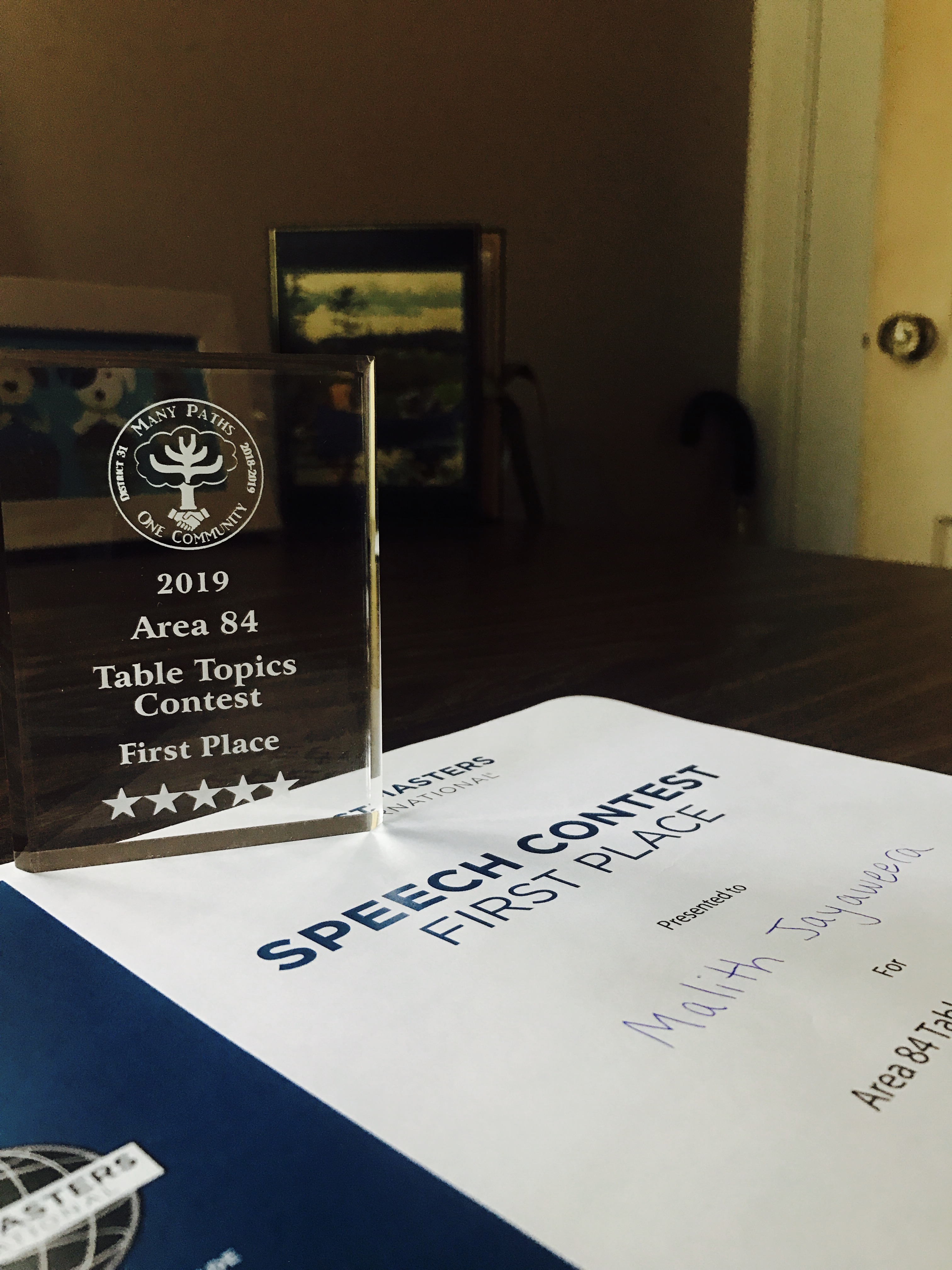As a non native English speaker, I always had a doubt whether it was possible to master impromptu speaking and win a speech competition against native English speakers. Well, I have done it not once but twice within a time span of 4 months. It is doable and I also have photographic testament. If you are eager to learn a few tricks to put you ahead, please read through.

1. Relax
Even the most competent speakers are nervous when they go on stage. The key is to reduce your nervousness gradually. One technique I always use is that I focus on delivering my best, regardless of the opinion of others. The ideology provides tremendous strength to stand up in the most difficult situations.
If you’re not relaxed you cannot perform to your fullest extent. Therefore, it’s crucial to practice being relaxed on stage. There’s another technique frequently used to calm your nerves — meeting new people in the audience. It’s always a serendipity to see familiar faces when you’re on stage.
2. Content Matters
The most important fact of any speech is having good content. The content should match the audience and the type of speech you’re delivering. The most frequent question I hear is “How do I build Good Content?”. Well, it could be either through personal experiences, reading articles or through stories of others. Personal stories have the ability to make the greatest impact on an audience. Especially, if it’s emotionally relatable to the audience, you have a higher probability of delivering a grandiloquent speech.
The challenge is formulating the structure within 20 seconds because that’s all the time you will have when you walk through the door on to the stage. I usually think of an idea and then break it down to three components. For example, if it’s a personal story, I select three highlights of the story. This gives me enough time to make myself comfortable on stage. The words will flow automatically since you already have a structure in mind.
3. Emotional Connection
The easiest way to build an emotional connection is narrating a personal story and walking the audience through those moments. If you are sincere and relaxed on stage, your body movements will conspicuously communicate so that the audience could also share the same moments with you.
4. Eye Contact
Eye contact with audience members is crucial to show your enthusiasm and to involve audience members in your speech. If you glance towards the floor or the ceiling, it inconspicuously communicates that you are nervous. Glaring in to another person’s eyes can be daunting but mastering the skill will assist you in becoming a persuasive speaker.
5. Gestures and Stage Movements
Well coordinated gestures are critical to accentuate your content. When your gestures and content is simpatico, the persuasive element of your speech increases to a remarkable extent.
In addition to gestures, stage movements are also vital when you’re building a story. For example, if you have a chronological order for your content, you can easily incorporate stage movements by implying a timeline on stage.
6. Accent
Most people posit that the accent carries a remarkable weight. Although it’s not completely true, your accent might have some effect. For example, when I first moved to Boston, I had to repeat myself multiple times before people could understand me. Later on I discovered phonetics prominent in American English which have to be accentuated so that the other party can understand you easily.
7. Join Toastmasters
Toastmaster provide a great mentoring program for fledgling speakers to master impromptu speaking. The mentoring program not only focuses on coaching where short term goals are valued, but also the development of the member in the long term. In addition to that, you get to become part in an organization with ebullient, vigorous and perspicacious people.
Always remember that it is a gradual process. When you incorporate these basic skills you will eventually master impromptu speaking.
Disclaimer: I’m the Sergeant At Arms At Northeastern University Toastmasters. All views are mine and does not reflect the views of Northeastern University Toastmasters or Toastmasters International.